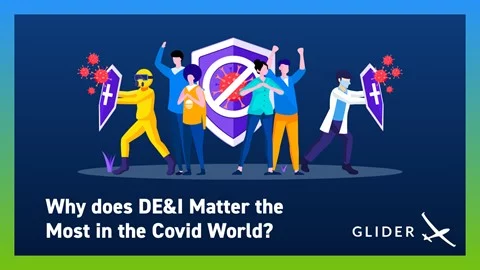Technology has always been a double-edged sword. It can be super helpful, but it also has its tricky side. The same is true for Artificial Intelligence (AI), especially when it comes to hiring. AI in recruitment can make finding the right people easier and faster, but here’s the catch – it can also bring in some problems like biases and fairness issues.
That’s exactly why organizations using AI in recruitment need to prioritize ethical AI practices and create a solid strategy for diverse hiring. Their ultimate goal should be to build a workplace where AI does not just make hiring easier but does it in a fair, inclusive, and transparent way.
A. Understand and Acknowledge AI Bias
To tackle the issue of AI bias and discrimination in hiring, let’s get down to the nitty-gritty of where these problems come from. You see, AI systems learn from the data they have seen, collected, or fed. And if that data is biased, the AI can unknowingly carry those biases into the hiring process.
Think about it this way: If AI algorithms learn from biased data, they might end up showing favoritism towards certain groups or genders without even meaning to. This ends up causing unfair outcomes in hiring. To deal with this, organizations need to actively acknowledge that AI discrimination exists and spread the word among everyone involved.
All in all, understanding and recognizing this AI bias and discrimination is the first step towards creating diversity recruiting strategies that stick to ethical AI principles. This will guarantee a fair and inclusive hiring process.
B. Create Inclusive Data Sets
Now that you know about AI biases, your goal is to eliminate them by using all sorts of different information. Think of it like feeding the brain of AI a mix of everything – that’s how it gets smarter and fairer.
Understandably, if most of the information comes from one group, the AI might pick up their biases without even realizing it. To avoid that, you need data that accurately represents a broad spectrum of demographics – different races, genders, ages, and socioeconomic backgrounds.
The more diverse your data is, the less chance your AI will keep those unfair biases. Following this practice becomes even more crucial, especially when using AI in recruitment, as we want a hiring process that’s fair for everyone.
C. Implement Transparent and Explainable AI Models
When we are talking about dealing with AI bias and discrimination, one of the smart moves is to focus on making things as clear and understandable as possible.
More importantly, it’s not just about fixing bias; it’s also about being open and honest. How? Imagine you are applying for a job, and you have no clue how the hiring system works. That would be frustrating, right?
So, as an organization, if you can explain how you employ AI in recruitment, not only will you build trust with job seekers but also boost the trust and confidence of your current employees as they feel things are fair and open.
D. Continuous Monitoring and Adjustment
AI algorithms aren’t set in stone; they change over time as they accumulate or learn from new information. To ensure they are fair and avoid playing favorites, organizations need to set up ongoing checks for their AI solutions.
So, what does this mean? It means regularly examining how these algorithms are performing. If any AI biases pop up, catch them early and fix things promptly. It’s the same as giving your AI a regular health check to ensure it’s working in an unbiased way– making sure the hiring process stays fair and square.
But remember, it’s not a one-and-done deal. This strategy requires you to stay updated about the new things happening in the world of AI and related technologies. You must be on top of these changes to ensure your recruitment practices remain ethical and fair for everyone.
E. Maintain The Right Balance Between Humans And AI
AI is excellent at speeding up the early parts of hiring—no doubt about it, not even a bit. But it’s super important to keep the human touch in the whole process. Your hiring plan should leverage both AI’s efficiency and the personal touch of humans.
Make sure your AI systems work alongside human decisions instead of taking them over. Tell recruiters to think of AI insights as helpful tips, not strict rules. This way of working together allows you to examine job applicants more closely, thinking about things that AI might miss.
All in all, by finding the sweet spot between AI and recruiters in hiring, you will be able to make things better for everyone. In other words, the right mix of humans and AI in recruitment will create a win-win for your organization and all potential candidates.
Conclusion: AI in recruitment is the need of the hour. However, you need to watch out for AI bias and discrimination, strive for ethical AI practices, and embrace ethical AI recruitment software like Glider.ai. By finding the right balance between all these, you will be able to ensure a fair and inclusive hiring process that benefits both organizations and candidates.
FAQs
Q1: How does AI in recruitment contribute to bias and discrimination?
AI in recruitment relies on historical data, which may contain biases. For example, if past hiring decisions favored certain groups, the AI might unintentionally copy these biases, which leads to discrimination.
Q2: Can you give an example of how AI discrimination occurs in the hiring process?
Sure! If an AI algorithm is trained on resumes from a predominantly male industry, it might unintentionally favor male candidates. This will contribute to gender-based discrimination in hiring.
Q3: What’s the role of transparency in combating AI bias and discrimination?
Transparency plays a crucial role in mitigating AI biases, as it helps us understand how AI makes decisions. Ultimately, these clear insights into the algorithm’s process help us identify and rectify any biased patterns effectively.
Q4: Why is it important to have human oversight in AI-driven recruitment?
Having humans overseeing AI in hiring is vital as it ensures that ethical concerns are not missed. While AI accelerates the process, human judgment helps understand the unique qualities and experiences of candidates.



